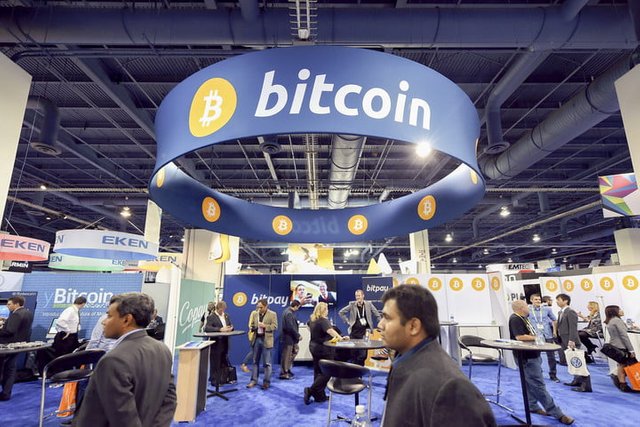The 5 Worst Bitcoin Scams
Blockchain aimed to protect Bitcoin, but these 5 scams show it misses the mark
At the point when the Bitcoin first tagged along, one of its greatest draws was the utilization of blockchains to make the cash secure in our advanced world. Sadly, advanced wallets are as yet open to hacking, and individuals are as yet open to defrauding — along these lines, so much misleading.
To get a thought of how awful it can get, how about we investigate the greatest Bitcoin tricks ever, and the regularly absurd reasons that they happened
The Massive Mt. Gox Disaster

You may have officially caught wind of Mt. Gox. It's effortlessly a standout amongst the most notorious crashes in Bitcoin history, a tangled bunch of mix-ups, defilement, and extortion. Back in the mid 2010s, Mt. Gox was a Bitcoin trade situated in Tokyo that took care of the lion's share of Bitcoin exchanges the world over, in light of the fact that individuals thought it was protected.
Shockingly, Mt. Gox turned out to be anything other than secure. Inside a couple of short years it confronted a few enormous fruitful hacking assaults, installment handling issues, legislative examinations, and a huge bank keep running as individuals endeavored to pull back their assets (and discovered it won't not be conceivable).
At last, Mt. Gox surrendered. In a staggering hit to the Bitcoin advertise, the organization petitioned for insolvency and reported that it had completely lost around 850,000 Bitcoins, worth about $450 million dollars at the time, or almost $8 billion at the present normal market esteem. Oh no!
Obviously, programmers didn't carry off every last bit of it — indeed, it's difficult to tell exactly how much cash was hacked on account of security issues, and what amount was basically stolen by Mt. Gox delegates. Millions of dollars were lost to misrepresentation, misappropriation, and other illicit acts made by organization operators and accomplices. It will most likely be a very long time before we know exactly how profound the misleading went.
The Optioment Ploy

One of the most exceedingly awful sorts of cryptographic money tricks includes a phony ICO (starting coin advertising). What might as well be called an organization opening up to the world, an ICO happens when a business first begins offering its cryptographic money.
Most ICO tricks utilize fundamental speculation misrepresentation, a.k.a. "We guarantee we're a super-genuine and extremely effective organization!" when the organization doesn't really exist and has no arrangement to make a benefit. Further developed ICO tricks may even claim to be other, genuine digital currency associations to befuddle purchasers who are seeking on the web.
Bitcoin Savings and Trust was considerably more barefaced: It began as an ICO trick based around a straightforward Ponzi plan, and after that… continued going. Accidental financial specialists were guaranteed stunning returns like 7 percent for each week, and eventually in excess of 265,000 bitcoins were stolen by means of misrepresentation. The entire Savings and Trust plot at last fallen in 2012, and the coordinator Trendon Shavers was made up for lost time in court fights for a considerable length of time: This in the end prompted his detainment and a $40 million fine. Too terrible the bitcoins that only he stole were worth around $97 million at the season of his condemning.
Silk Road’s Ridiculous Email Trap

"Pause, Silk Road wasn't precisely a trick, was it?" you might ponder, and you would be right. Silk Road was a notorious underground market for exchanging drugs and different unlawful things on the Dark Web. In particular, it was brought around the FBI and other law authorization associations… which really solidified Bitcoin as a true blue cash that administrations thought about.
At that point things went somewhat off-base. In particular, the administration consented to sell offer the Bitcoins seized from Silk Road (something that usually happens to innocuous seized products), so it reached potential members to tell them about the closeout and inquire as to whether they were keen on joining. Sadly, because of an exemplary "bcc" email botch, every potential bidder could see everybody the email was sent to. That rundown was immediately replicated, sold and stolen.
The outcome was a flood of trick messages sent to every one of these individuals who were at that point keen on purchasing Bitcoins. Phishing plans like this one put on a show to be from the legislature or related offices, searching out touchy money related data that enabled the con artists to take Bitcoins from those taking an interest. It wasn't the best method to end the Silk Road case.
Canadian Bitcoins and the Simplest Scam

The most noticeably awful tricks are those that nobody should fall for, yet some way or another work in any case. This happened to Canadian Bitcoins, a trade that was utilized to—as you may figure—oversee Bitcoins for Canadian speculators. In 2014, the trade was expertly hacked, and at any rate $100,000 dollars worth of Bitcoins were stolen.
Things being what they are, the place does the trick come in? Indeed, CB had rented out some space at a Rogers Data Center for imperative server equipment, the kind of equipment you could use to hack into the trade. The server farm fell for what may be the most established trick in the book, directly behind, "Hello, what's that over yonder!?"
A programmer made an impression on Rogers Data Center that (essentially) stated, "Hi, I am the CEO of Canadian Bitcoins. My name is James Grant. I require all your security codes." Rogers confirmed that the CEO of Canadian Bitcoins was without a doubt named James Grant, at that point sent the programmer all the security codes they required. Nobody at any point verified whether the message had truly been from Grant, or requested any sort of affirmation, or, you know, endeavored to contact Grant through expert channels. You can envision how disappointed speculators were the point at which they discovered.
Bitcoin Gold and False Promises

Bitcoin gold was a task intended to make another type of cryptographic money that likewise took advantage of the Bitcoin name. That marking trap was somewhat shady, yet nothing was especially illicit.
At that point, master con artists manufactured a site called "mybtgwallet.com" which offered clients an ideal chance to produce Bitcoin gold wallets. All they needed to do was present their private keys used to secure their digital currency wallets!
Obviously, individuals shouldn't have fallen for such an undeniable trick, yet evidently the site looked persuading to a ton of purchasers. More than $3 million in Bitcoins were stolen by the tricksters, alongside various different digital forms of money. Indeed, even the designers of Bitcoin chilly were restricted into the trick and really supported the site on its Twitter account before acknowledging it was every one of the one major con. Keep in mind, it's extremely simple to lie on the web.